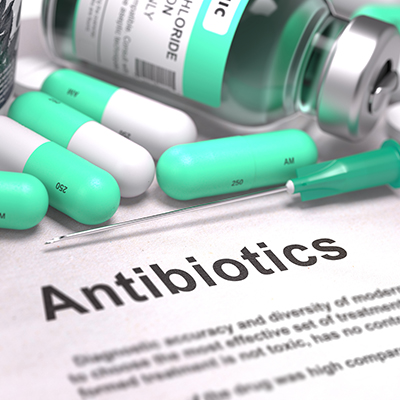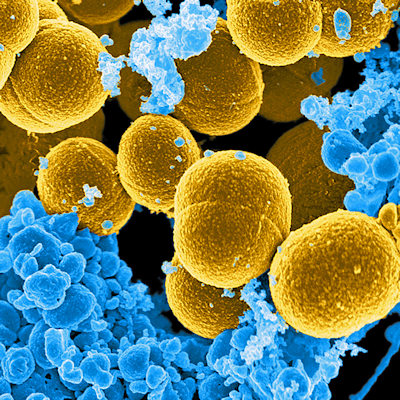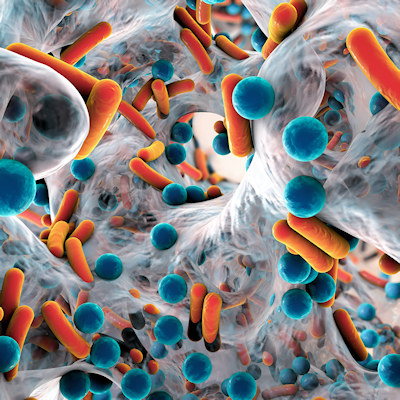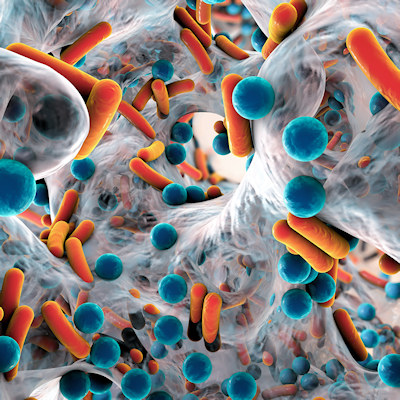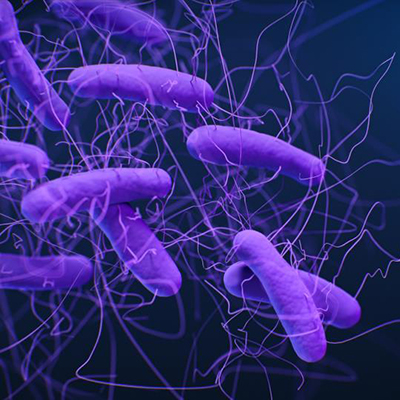May 25, 2023 -- Scientists used artificial intelligence (AI) to discover a promising antibiotic that may help doctors target Acinetobacter baumannii, a deadly, drug-resistant pathogen that often strikes vulnerable hospital patients. The study, published Thursday in the journal Nature Chemical Biology, identified the antibacterial compound abaucin in response to the urgent need for new ways to treat A. baumannii infection.
A. baumannii, identified by the World Health Organization (WHO) as one of the world's most dangerous antibiotic-resistant bacteria, is usually found in hospital settings, where it can survive on various surfaces for long periods of time. The pathogen can pick up DNA from other bacteria species in its environment, including antibiotic-resistance genes. Notoriously difficult to eradicate, A. baumannii can cause pneumonia, meningitis, and wound infection, all of which can lead to death.
Finding new antibiotics effective against A. baumannii has been challenging. Most antibiotics are "broad-spectrum": they kill all bacteria, disrupting the gut microbiome, which increases vulnerability to a host of serious infections, including Clostridioides difficile. Traditional screening methods for new antibiotics are time-consuming, costly, and limited in scope.
By contrast, modern deep learning-guided AI-based approaches can identify hundreds of millions of molecules with antibacterial properties, significantly increasing the chances of discovering fundamentally new antibacterial molecules. The researchers used an AI algorithm to predict new structural classes of antibacterial molecules, and to home in on the new antibacterial compound, which they named abaucin.
The researchers believe abaucin is especially promising because it targets only A. baumannii. This crucial finding indicates that the pathogen is less likely to develop rapid drug resistance, which could lead to more precise and effective treatments. The researchers' approach could also help speed the discovery of other much-needed antibiotics to treat other challenging bacteria.
"AI approaches to drug discovery are here to stay and will continue to be refined," co-author James J. Collins, Massachusetts Institute of Technology (MIT) medical engineering and science professor, noted in a statement. "We know algorithmic models work; now it's a matter of widely adopting these methods to discover new antibiotics more efficiently and less expensively."
"We know broad-spectrum antibiotics are suboptimal and that pathogens have the ability to evolve and adjust to every trick we throw at them," lead author Jonathan Stokes, assistant professor of biomedicine and biochemistry at McMaster University, said in a statement. "AI methods afford us the opportunity to vastly increase the rate at which we discover new antibiotics. This is an important avenue of exploration for new antibiotic drugs."
Disclosure: Jonathan Stokes is co-founder and scientific director of the social venture company Phare Bio. James J. Collins is co-founder and scientific advisory board chair of Phare Bio, and co-founder and scientific advisory board chair of the bioengineering company Enbiotix.
Copyright © 2023 scienceboard.net




